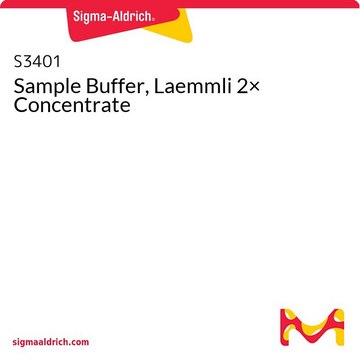14-450-M
Cdk1/cyclin B Protein, active, 10 µg
Active, C-terminal His6-tagged human full length Cdk1 & N-terminal GST-tagged human full length Cyclin B, for use in Kinase Assays.
Sinónimos:
Active Cdk1/cyclin B, Cdk1 Protein
Iniciar sesiónpara Ver la Fijación de precios por contrato y de la organización
About This Item
UNSPSC Code:
12352202
eCl@ss:
32160405
NACRES:
NA.26
Productos recomendados
biological source
human
Quality Level
form
liquid
shelf life
6 mo.
mol wt
Mw 35 kDa (cdk1)
Mw 75 kDa (cyclin B)
manufacturer/tradename
Upstate®
technique(s)
activity assay: suitable (kinase)
solubility
water: soluble
NCBI accession no.
UniProt accession no.
storage temp.
−70°C
Gene Information
human ... CCNB1(891) , CDK2(891)
General description
Research area: Apoptosis
Cyclin dependent kinase 1 (CDK1), a type of serine/threonine kinase, is a catalytic subunit of the M phase-promoting factor (MPF) complex.
Cyclin dependent kinase 1 (CDK1), a type of serine/threonine kinase, is a catalytic subunit of the M phase-promoting factor (MPF) complex.
Biochem/physiol Actions
Cyclin B protein regulates mitosis in all eukaryotes. Cyclin B binds to cyclin dependent kinase 1 (CDK1), forming a complex that triggers the start of mitosis by phosphorylating specific proteins. Cyclin B regulates the activation, subcellular localization, and target selection of CDK1. Its destruction is essential for the completion of mitosis. Overexpression of human cyclin B1 has been linked to aggressive tumor behavior and is frequently observed in various cancers.
CDK1 plays a key role in driving the M-phase in both meiosis and mitosis. It becomes highly active at the start of the M-phase and becomes inactive at the end. CDK1 controls various important events in the cell, such as DNA replication, segregation, and repair, as well as mRNA transcription and cell morphogenesis. Additionally, it regulates ribosome assembly by targeting specific ribosomal proteins.
CDK1 plays a key role in driving the M-phase in both meiosis and mitosis. It becomes highly active at the start of the M-phase and becomes inactive at the end. CDK1 controls various important events in the cell, such as DNA replication, segregation, and repair, as well as mRNA transcription and cell morphogenesis. Additionally, it regulates ribosome assembly by targeting specific ribosomal proteins.
Packaging
Also available in 250 µg size --call for pricing and availability and reference catalog number 14-450M when ordering the 250 µg size.
Quality
routinely evaluated by phosphorylation of the Histone H1 substrate
Physical form
Purified using Ni2+/NTA-agarose and GST-agarose, respectively. The cdk1 is then activated using CAK and repurified by Q Sepharose™ and Ni2+/NTA-agarose
Storage and Stability
6 months at -70°C
Other Notes
For Specific Activity data, refer to the Certificate of Analysis for individual lots of this enzyme.
Legal Information
Sepharose is a trademark of Cytiva
UPSTATE is a registered trademark of Merck KGaA, Darmstadt, Germany
Disclaimer
Unless otherwise stated in our catalog or other company documentation accompanying the product(s), our products are intended for research use only and are not to be used for any other purpose, which includes but is not limited to, unauthorized commercial uses, in vitro diagnostic uses, ex vivo or in vivo therapeutic uses or any type of consumption or application to humans or animals.
Certificados de análisis (COA)
Busque Certificados de análisis (COA) introduciendo el número de lote del producto. Los números de lote se encuentran en la etiqueta del producto después de las palabras «Lot» o «Batch»
¿Ya tiene este producto?
Encuentre la documentación para los productos que ha comprado recientemente en la Biblioteca de documentos.
Lin Deng et al.
Molecular cell, 73(5), 915-929 (2019-03-09)
DNA replication errors generate complex chromosomal rearrangements and thereby contribute to tumorigenesis and other human diseases. One mechanism that triggers these errors is mitotic entry before the completion of DNA replication. To address how mitosis might affect DNA replication, we
Nuestro equipo de científicos tiene experiencia en todas las áreas de investigación: Ciencias de la vida, Ciencia de los materiales, Síntesis química, Cromatografía, Analítica y muchas otras.
Póngase en contacto con el Servicio técnico







